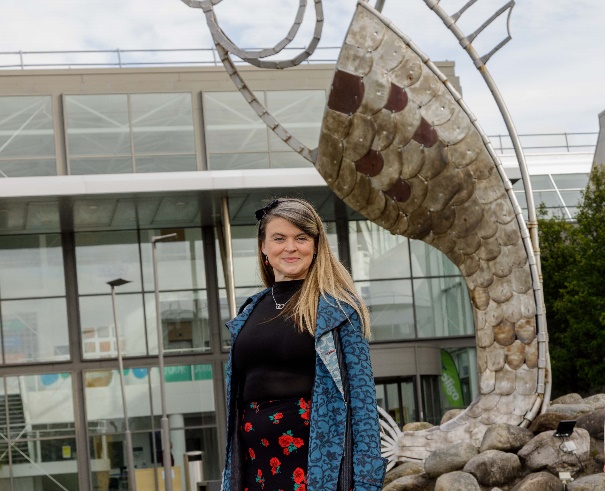Hilary McDonagh
Current PhD Student
Modifying subconscious tongue Movements to improve fluency in Adults with Developmental Stutter: A pilot randomised feasibility study.
Recognised Research Group: CHANCE
Research Cluster: Neuroplasticity Research Group
Hilary McDonagh obtained her BA in Pure (Hons) Psychology from University College Dublin. She worked for some time as a Professional Bridge player, teaching and coaching the Irish Junior Bridge Team. She is currently a Member of the Irish Ladies Team for 2021-2022. Her passion for bridge was featured on R.T.E. television show “Consuming Passions” (2007)
With 18 years’ experience teaching in the Further Education Sector, she has just started her research journey having joined the Neuroplasticity Research Group with funding from tie Irish Research Council (EBPPG/2019/135), under the supervision of Dr. Kenneth Monaghan. She is a Member of the Irish Teaching Council and the Psychology Society of Ireland. Her research has been presented at the 25th World Congress on Neurology and Neuroscience, 2018, C.U.A. Congress 2020 and the 12th Oxford Dysfluency Congress 2021 and published a Focus Article (2019) introducing her theoretical perspective.
Research Project Summary:
Hilary McDonagh’s research focus is dysfluent speech, specifically Developmental Stammer. She has devised a novel intervention using eye movement to control tongue position. Her particular focus is changing the origin of eye movements, (which predict movement from learned movement patterns), so that movement vectors start from a different place. Theoretically this approach is based on how early motor control and motor learning has altered the development of neurological speech motor patterns. She has outlined how eye movement and tongue movement are linked in a focus article (See publications below) but this needs to be quantified and investigated further. She is currently finalising an exploratory Case Series before proceeding to registered Clinical Trial (NCT04310435). Her work has received Ethical Approval form both I.T. Sligo and SUH (No. 800)
Potential Impact of your research?
An estimated 1% of the Worlds Population have a developmental stammer – in emotionally heightened situations, they are unable to produce clear speech. This technique allows them to do so, the training is just to get used to applying the technique. This intervention, therefore, has the direct capability of improving the quality of life for 70 million people world-wide.
Malocclusions are the result of incorrect tongue position. The World Health Organization estimates malocclusions are the third most prevalent oral health problem, and the Association of Applied Myofunctional Sciences has been established to change muscular use and improve oral health outcomes. The unconscious neural mechanisms controlling tongue position have not been explored by any other research I am aware of.
Papers
- McDonagh, Hilary (2018) Mechanics of the Frontal Aslant Tract, Journal of Neurology and Neurophysiology 2018, Volume 9. DOI: 10 .4172/2155-9562-C3-067
- McDonagh, Hilary and Monaghan, K. (2019). Neuroplastic Control of Developmental Stutter via the Frontal Aslant Tract: Past, Present, and Future. American Journal of Biomedical Science & Research, 5(6), 507–511. https://doi.org/10.34297/ajbsr.2019.05.000978Focus Article Published in Journal of Biomedical Sciences and Research
- McDonagh, H, Monaghan, K and Roberts, D (2020). Mechanics of the Frontal Aslant Tract. Academic poster Conference: CUA Jan 2020
- McDonagh, H, Broderick, P, Monaghan, K and Roberts, D (2021). Novel treatment for management of an adults confirmed developmental stammer by modifying saccadic eye movements: a descriptive case report DOI: 13140/RG.2.2.16088.11524. Conference: 12th Oxford Dysfluency Congress
- McDonagh, H, Monaghan, K and Roberts, D (2021), Using eye movement to change predictions and allow verbal fluency: A descriptive case report. Article submission under process with Clinical Archives of Communication Disorders.
Presentations
- 25th World Congress on Neurology and Neuroscience, June 18-18 Dublin Ireland
- CUA Research Congress, January 2020, Sligo Ireland
- 12th Oxford Dysfluency Congress, Online, January 2021
